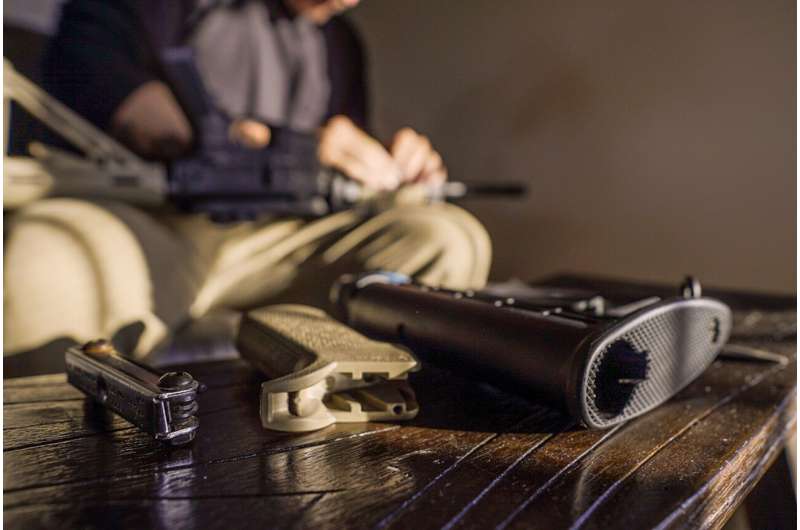This article has been reviewed according to Science X's and . have highlighted the following attributes while ensuring the content's credibility:
fact-checked
peer-reviewed publication
trusted source
proofread
Most school shooters grew up with guns as key part of social life, study suggests

A new analysis of school shootings in the U.S. suggests that most shooters had a social background in which guns were a key leisure item, with attached meanings of bonding and affection, which also translated into easy access to firearms. Anne Nassauer of the University of Erfurt, Germany, in PLOS One.
For U.S. minors, guns are the leading cause of death. Some of these deaths occur in school shootings, where a current or former student fires at people at their school. Discussions of school shootings often cite the unique gun culture of the U.S. as a causative factor. However, few studies have methodically analyzed the role of gun culture in school shooters' lives.
To address this gap, Nassauer analyzed all known U.S. school shootings across U.S. history (83 cases), some of which resulted in no deaths, some in a few deaths, and some in many. Using data from court, police, and media records, she assembled a case file for each shooter and conducted cross-case and statistical comparisons to determine whether any patterns in gun culture emerged.
The analysis suggests that a distinct pocket of U.S. gun culture plays a key role in school shooters' lives. Specifically, most shooters in the study came from a social background in which guns were key leisure items that were often important for family bonding time, often from a young age. Some shooters described guns as being their "only friend" or the "love of [their] life."
Notably, all shooters in the study faced no difficulty in obtaining the guns they used in the school shootings. The analysis suggests that this ease of access stemmed from the cultural meanings assigned to guns within the shooters' social settings—namely, fun, bonding, and belonging—which translated into practices that made accessing guns easy. For instance, some parents had bought the guns their children then used for the school shootings, while others kept guns in easily accessible parts of their houses.
The findings suggest that research on how to prevent school shootings could focus on making guns more difficult for students to access and on finding ways to foster student belonging.
The author adds, "All school shooters in U.S. history had easy access to the firearms they used—even those who were very young or severely mentally ill. Many came from a gun culture where firearms are symbols of affection, bonding, and identity. The weapons were often freely accessible in the shooters' homes."
"This study shows school shooters don't just use guns, but many grow up in worlds where guns are central to identity and belonging. Gun culture isn't just a backdrop—it's a formative part of many school shooters' lives. For many school shooters, guns were what they called their 'only friend,' or 'the love of their life.' We can't understand school shootings without understanding how gun culture shapes youth identities and gun access."
"Guns don't cause school shootings, but they make them possible—and often far too easy. There's not a single school shooting in the US where a shooter had trouble getting a firearm. So we have to ask: Why do only those with easy gun access do it? Are other potential shooters deterred because they don't have a gun within easy reach?"
More information: Anne Nassauer et al, "The only friend I had was my gun": A mixed-methods study of gun culture in school shootings, PLOS ONE (2025).
Journal information: PLoS ONE
Provided by Public Library of Science


















